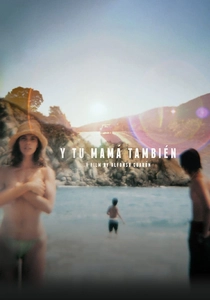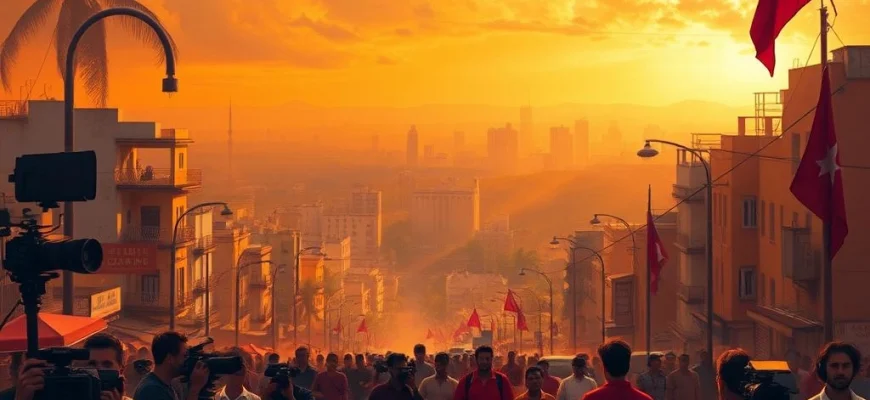If you were captivated by the poetic visuals and revolutionary fervor of I Am Cuba (1964), this list is for you. Discover 10 films and shows that share its stunning cinematography, political depth, or lyrical storytelling. Whether you're a cinephile or a history buff, these picks will transport you to similarly immersive worlds.

Black God, White Devil (1964)
Description: A visually stunning and politically charged film that blends myth, religion, and social critique, with a strong emphasis on the struggles of the oppressed.
Fact: The film is part of the Cinema Novo movement, which sought to create a uniquely Brazilian cinematic language. It was restored in 2006 by the World Cinema Foundation.
 Watch Now
Watch Now 
The Battle of Algiers (1966)
Description: A powerful political drama that uses a documentary-like style to depict revolutionary struggle, featuring striking black-and-white cinematography and a focus on collective action.
Fact: The film was banned in France for several years due to its controversial subject matter. It was later screened at the Pentagon in 2003 as a case study for urban warfare.
 Watch Now
Watch Now 
The Official Story (1985)
Description: A powerful political drama that examines the legacy of dictatorship and the search for truth, with a strong emotional core and a focus on personal and collective memory.
Fact: The film won the Academy Award for Best Foreign Language Film in
 Watch Now
Watch Now 
Central Station (1998)
Description: A poignant drama that explores themes of redemption and human connection, with a strong emphasis on the landscapes and people of Brazil.
Fact: The film was nominated for two Academy Awards, including Best Foreign Language Film. It was a major critical success and helped popularize Brazilian cinema globally.
 Watch Now
Watch Now 
Y Tu Mamá También (2001)
Description: A coming-of-age story that blends personal drama with social commentary, featuring a raw and unfiltered look at life in contemporary Mexico.
Fact: The film was shot in a naturalistic style, with improvised dialogue and long takes. It was a breakthrough for Mexican cinema internationally.
 Watch Now
Watch Now 
City of God (2002)
Description: A kinetic and visually dynamic film that portrays the harsh realities of life in the favelas, with a strong focus on the cyclical nature of violence and poverty.
Fact: Many of the actors were non-professionals recruited from the favelas of Rio de Janeiro. The film was a critical and commercial success worldwide.
 Watch Now
Watch Now 
The Motorcycle Diaries (2004)
Description: A visually lush road movie that explores themes of social injustice and personal awakening, with a strong emphasis on the landscapes and people of Latin America.
Fact: The film is based on the real-life travel diaries of Che Guevara. It was shot in multiple countries along the actual route Guevara took in the 1950s.
 Watch Now
Watch Now 
The Secret in Their Eyes (2009)
Description: A gripping political thriller that combines personal drama with broader social commentary, featuring a nonlinear narrative and a strong sense of place.
Fact: The film won the Academy Award for Best Foreign Language Film in
 Watch Now
Watch Now 
The Challenge (1960)
Description: A poetic and visually striking film that delves into themes of revolution and personal transformation, with a strong emphasis on the human condition.
Fact: The film was shot on location in Mexico and features a mix of professional and non-professional actors. It is often cited as a precursor to the Latin American New Wave.
 Watch Now
Watch Now 
The Red Light Bandit (1968)
Description: A gritty, experimental crime drama that explores themes of social injustice and moral ambiguity, with a raw, unflinching visual style.
Fact: The film was controversial upon release for its violent content and was initially banned by Brazilian censors. It is now considered a landmark of Brazilian cinema.
 Watch Now
Watch Now 








